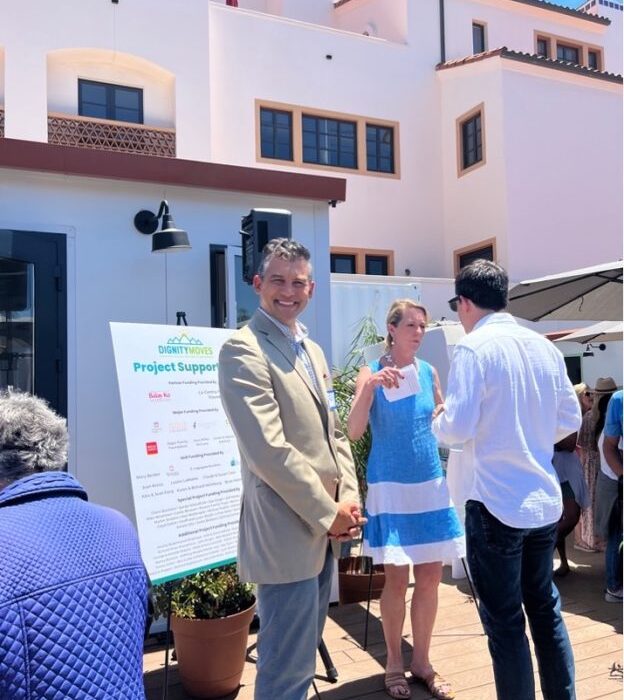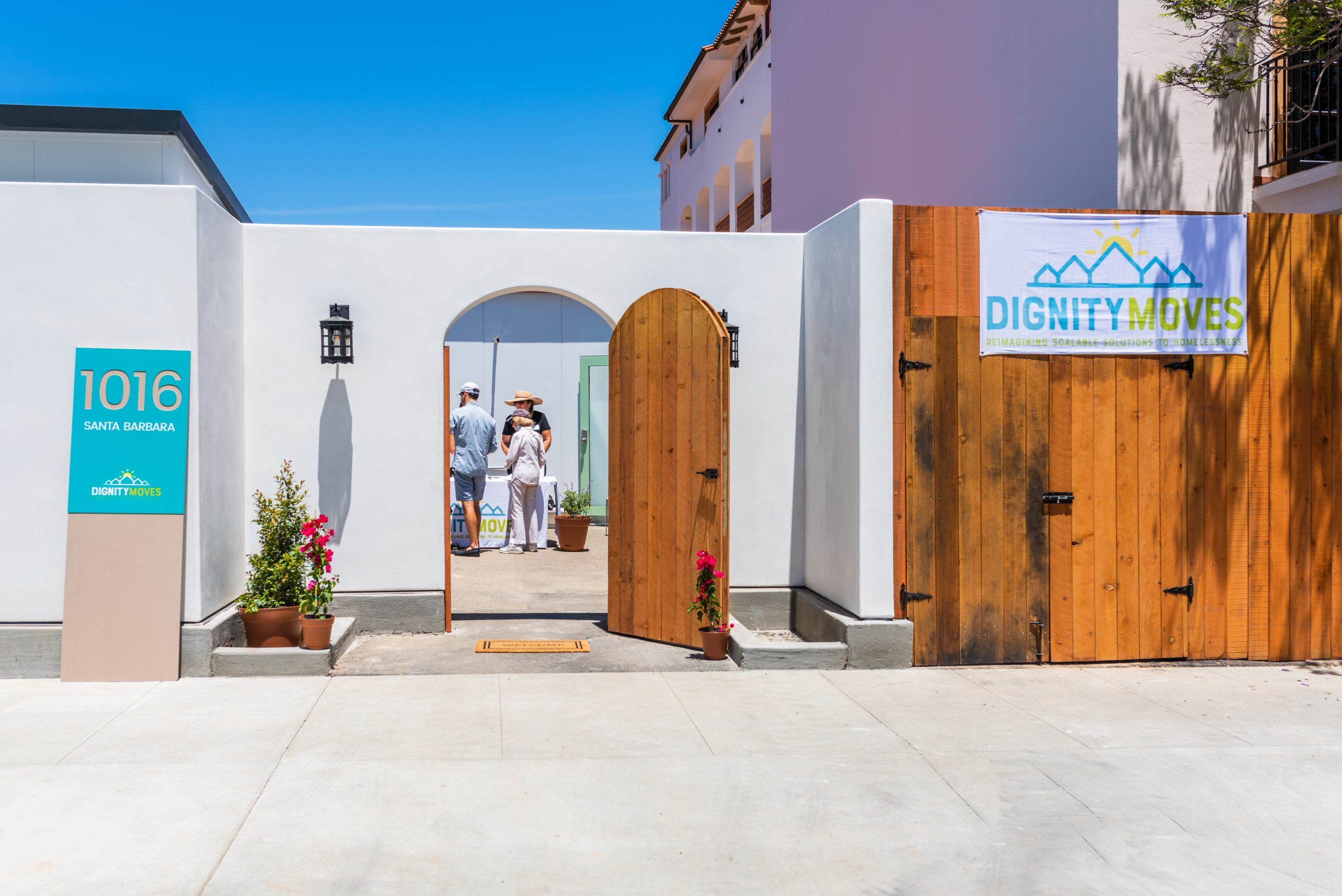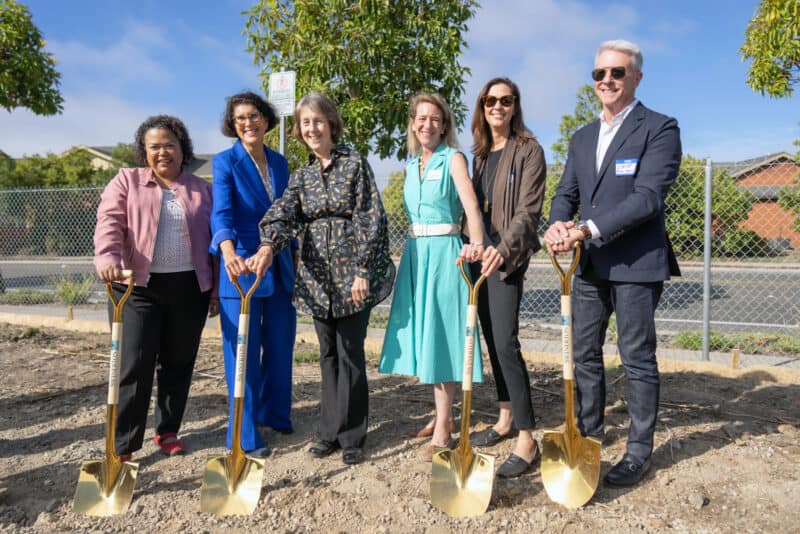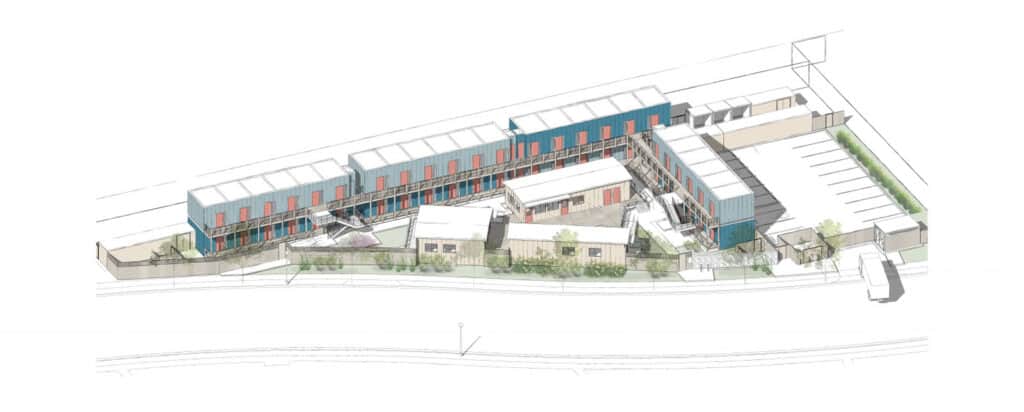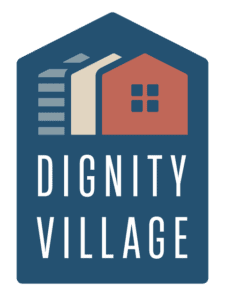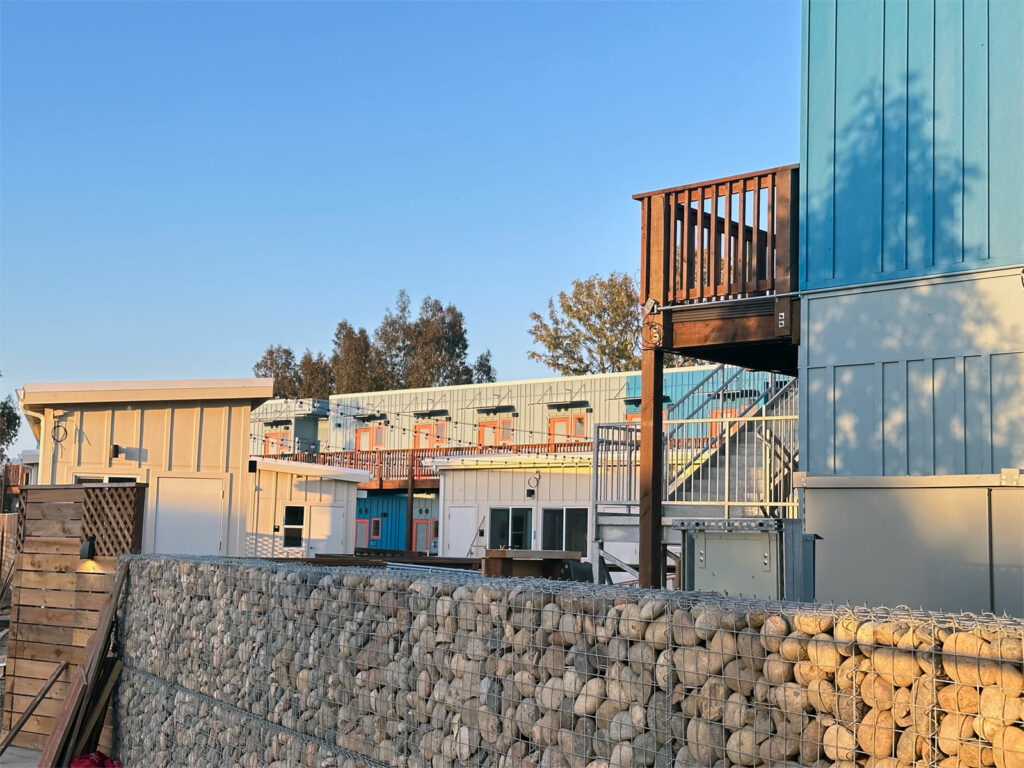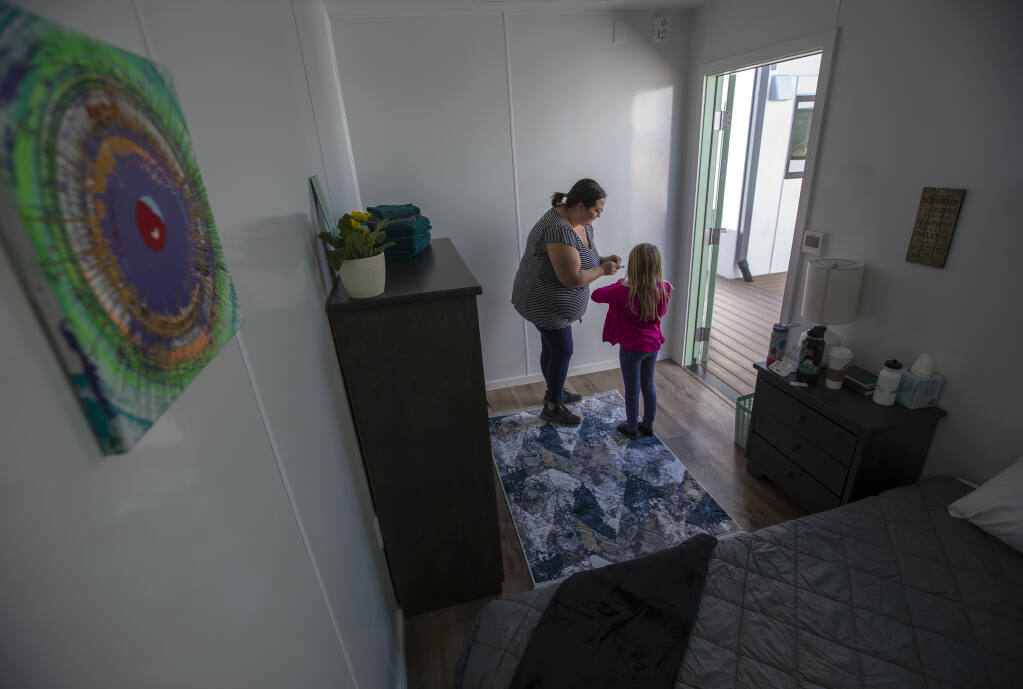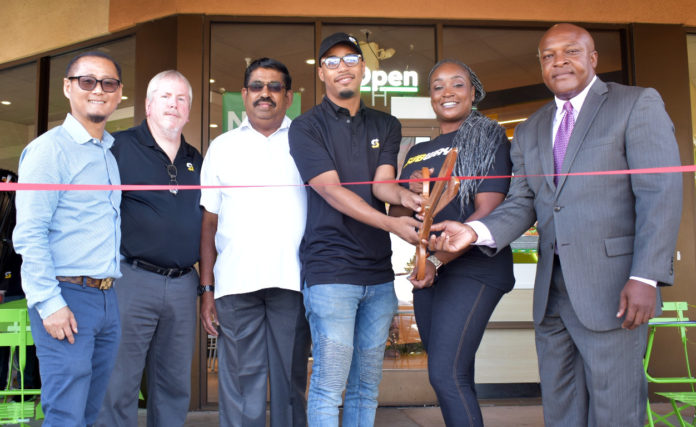Thank you so much for joining us in this interview series! Before we dive in, our readers would like to learn a bit about your origin story. Can you share with us a bit about your childhood and how you grew up?
Iwas born in San Francisco and raised in India. I returned to America at the age of 15, having come from a family with a proud, multi-generational history of business innovation in the real estate and construction sector.
Can you share with us the ‘backstory’ of how you got into the real estate business?
I always enjoyed real estate as a child. My father designed middle-income housing — and while it was nothing fancy, I was fascinated by the process and the result. I was fascinated by designs and buildings and the fact that from a simple canvas, the ground, you can build a building, then design comes in and the community aspect. At 15 or 16 years old I would go to open houses. The creative aspect and the actual building are inspiring to me. When I came back to the United States from India, I was staying with my uncle, who received publications for hotels. I would go through them, and I would call all the brokers for the listings. I was 16 years old.
Can you tell us about your company and what makes it stand out?
We are an agnostic real estate developer, with a focus on real estate, hospitality and retail. Our success is built on a foundation of strong relationships and partnerships. Our relationships with cities and retail brands are unique to us; we are creative, out-of-the box thinkers and those things set us apart. Anyone can put a rectangle on the dirt. But our project in Roseville Junction, for example, exemplifies how we can bring about unique uses of space with a mix of retail and hotels. We know where the great spaces are and we can build something that contributes to the community, economically and socially.
Can you tell our readers about the most exciting new projects you are working on now?
Every project is exciting because we are literally creating something out of nothing — with each project unique to the community it’s in. Just to name a couple: We currently have our Roseville Junction project in Roseville, California, in partnership with the American Hospitality Group, which will function as a sports and entertainment complex in Placer County. The Electric Pickle, Roseville Junction’s entertainment and sports complex, will comprise a bocce ball court and 10 pickleball courts, along with dining venues. Roseville Junction will feature “Social Connection” — a one-of-a-kind gathering place with curated food and beverage offerings. Already signed on as an anchor tenant will be Fieldwork Brewing Company, a popular brewery in Northern California.
Another exciting project that we’re working on is Fernley Promenade, a 13-acre mixed-use development along Interstate 80 in Fernley, California. The project will be the first shopping center development in Fernley in over a decade. The first confirmed tenant for Fernley Promenade is a 98-room Home2 Suites by Hilton with a swimming pool and fitness center. The development will also feature three junior retail anchors, as well as various dining and shopping options. Retail space, ranging from 1,200 square feet to 20,000 square feet, is currently available for lease. The property can accommodate freestanding buildings with drive-thru, junior anchor and shop space.
Ok, let’s now move to the main part of our interview about commercial real estate. What are the 3 things that most excite you about the industry now? Why?
- Many people might not realize that commercial real estate requires a lot more creativity than traditional residential real estate. You have to have the right project in the right place, and the right partners to see the project through.
- The markets are more challenging in commercial real estate so that requires out-of-box thinking and coming up with strategic approaches, which is also where the creativity comes in.
- If the “Doom Loop” in commercial real estate is real, there are a lot of buying opportunities in coming months — and that is definitely something to look out for.
What are the 3 things that concern you about it? Why? What should be done to address and alleviate those concerns?
- My biggest concern in the industry right now are the increased interest rates. If they stay where they are we have to figure out how to make deals work. We will see these rates go down over time but in the next 24 months developers may have resource debts and no bank wants that. Lenders should be willing to work with buyers so they can ride out this wave rather than foreclosing on larger projects.
- There are certain asset classes, such as office spaces, where we might see challenges in the next 12–24 months. This is contributing to the “doom-loop” narrative and impacts confidence in the market. As I mentioned before, these also pose buying opportunities. In some markets, it’s important we open up housing shortages by making housing approvals more accessible so people can build faster and move in, particularly in coastal markets.
- Construction costs haven’t dropped as much as we expected. They have stabilized, but they remain higher than in 2019, so also makes it harder for new construction development projects.
If you had the power to put in place 3 changes to improve or reform the industry, what would you suggest? Please share stories or examples, if possible.
This speaks to my previous responses. The biggest thing is that interest rates are historically high and until that comes down you will not see a lot of deals pencil out right now.
How has technology changed the commercial real estate industry, and how do you foresee it shaping the future of the sector?”
- Technology has definitely changed the industry. For example, with Ai you can gather a lot more data than what we typically relied on commercial brokers to provide.
- Technology has also enabled us to make buildings a lot more efficient with energy solutions. EV chargers, for example, are not just luxury anymore, they are requirements for our hotels and retail. They are now a necessity.
- For retail, there is a lot more data through geofencing that shows consumer behaviors, who is shopping, and here. We didn’t have that before and it helps inform our projects.
I am hearing the phrase “Stay alive until 2025” a lot. What is your plan to survive in the current market?
To stay alive until 2025!
For a young person who would like to eventually make a career in commercial real estate, which skills and subjects do they need to learn?
- Work ethic. You have to work a lot harder than anyone else in the office to survive in this competitive market.
- Technology. Embrace new ways of doing business through advances in technology, and think beyond traditional business practices.
- Patience. This is a long game; approach each deal and strategy accordingly.
Do you have three things you would advise a new real estate professional to avoid?
- Do not work behind your desk: Be out in the market looking for opportunities.
- Do not think you know everything. You are constantly learning, so open your mind when looking at deals and be creative
- Don’t expect to get rich quick. There is no fast buck here. Put in the work.
When evaluating deals or opportunities in real estate, what are the most important factors you look for and why? Can you provide some examples?
We underwrite deals more carefully than ever before. Capital markets today, where we are seeing high interest rates, do not make it easy for many deals to pencil out.
We weigh the value and ask ourselves: Is it cheaper to build or cheaper to acquire?
Can you share a story with us about the hardest deal you made, that ended successfully for you?
There was a deal that took us 2 years to get the co-tenancy clause approved after we bought the land. We would have faced a lot more risk in that deal if the co-tenancy clause wasn’t approved, but we were able to successfully negotiate that and break ground.
Based on your personal experience and success, can you please share “Five Things You Need To Create A Highly Successful Career In The Commercial Real Estate Industry”?
1 . Know your cities and your local municipalities and invest in understanding what makes each community unique.
2 . Real estate is not just about sending out a flier; it’s about working with your clients’ needs. Take the time to understand what they are looking for and how to address their unique needs.
3. If you’re expecting a steady income this is not the industry for you. There is always a balance of risk and reward.
4. Every day is not going to be a good day — but there will be great days. Have patience.
What advice would you give to another real estate professional about improving the work culture, building team morale, and helping each employee thrive?
It’s always about teamwork and every project requires a team effort. There are a lot of people from your back office to your people out in the field who will touch the project and it’s a team effort that makes any project successful.
You are a person of great influence. If you could start a movement that would bring the most amount of good to the most amount of people, what would that be? You never know what your idea can trigger. 🙂
I sit on the board of DignityMoves, an amazing organization that works to end unsheltered homelessness in communities by building Interim Supportive Housing as a rapid, cost-effective, and thus, scalable solution. I am passionate about addressing the issue of the unhoused and solving homelessness by utilizing resources that a city already has. For example, land that may be sitting empty and dormant for 10 years can be used for housing the unhoused.
How can our readers further follow your work online?
Akkipatel.net
Lrecompanies.com
This was very inspiring. Thank you so much for joining us!





